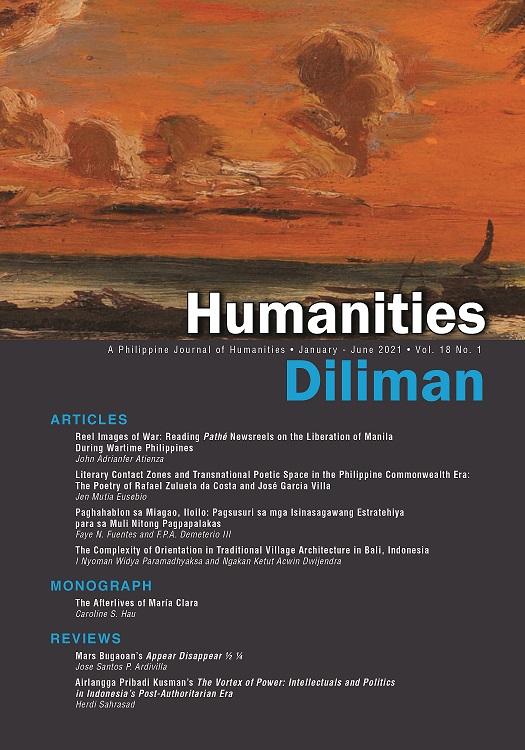The Afterlives of María Clara
Abstract
This article presents an overview (by no means exhaustive) of the critical and popular reception of José Rizal’s María Clara in the nearly one hundred and forty years since the publication of the Noli Me Tángere. Looking at the lively, at times heated, debates that have erupted over María Clara’s character (that is, her mental, physical, and moral qualities) and María Clara as a character (that is, a “person-like” fictional construct), this article argues that influential character studies of María Clara employ the logic of exemplarity to make an example of her: on the one hand, she is held up as a “sublime exemplar,” a model or standard, of a number of values ascribed to (elite) women, romantic love, and family; on the other hand, she is considered one among many examples of victims of Spanish colonialism. These debates over María Clara’s exemplarity as model and as victim intervene in broader intellectual and public discussions not only about the colonial legacies and postcolonial issues and challenges confronting Philippine society, but also—and in particular—about women’s “proper” comportment, evolving positions and roles, and continuing oppression (especially rape) in that society. This article argues that the staying power of María Clara as a female icon—disseminated through processes of translation and adaptation, temporalization, commodification, and transmedial storytelling—does not necessarily inhere in the reification, let alone imposition, of values defined as feminine and Filipino by generations of interlocutors. Rather, her staying power persists in the very gap that opens up between the ideals she is made to exemplify and the historically evolving, gendered lives and gendering of lived experience in the Philippines of which she serves as an example. Far from simply affirming the rules and norms governing Philippine society, María Clara’s exemplarity has critical potentiality, serving as an instrument of contestation, often by Filipino women themselves.


